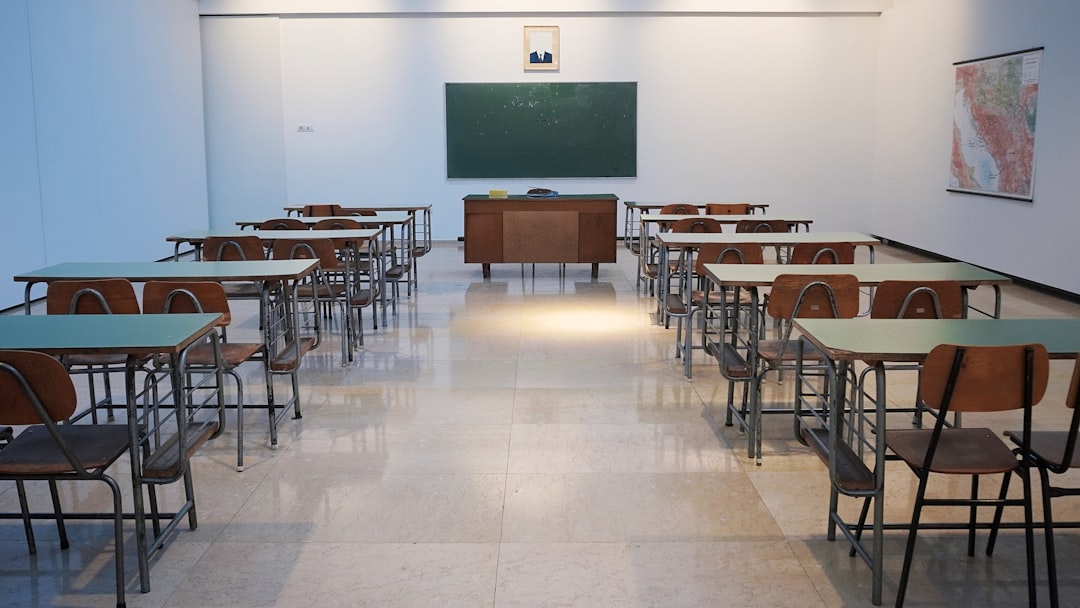Title IX, enacted in 1972, ensures equal opportunities in education for women and girls in Oregon, prohibiting sex discrimination and sexual misconduct. Title IX lawyers play a crucial role in protecting these rights, advocating for fair investigations, and ensuring compliance with federal regulations. Schools must conduct impartial, comprehensive investigations, maintaining confidentiality while providing equal resources to both parties. These laws guide students and institutions through complex procedures, from allegations to disciplinary actions, fostering safer, more inclusive learning environments in Oregon.
“Title IX, a landmark law ensuring equal educational opportunities, has significantly impacted Oregon’s schools. This article delves into the intricate balance of protecting students while upholding academic integrity post-allegations. We explore the process of handling Title IX complaints in Oregon, from initial investigations to legal protections. With a focus on student rights and institutional support, it examines the crucial role of a specialized Title IX lawyer in navigating these complex cases. Learn practical strategies for ensuring uninterrupted educational paths forward.”
Understanding Title IX and Its Impact on Education in Oregon

Title IX is a landmark federal law that has significantly shaped educational opportunities, particularly for women and girls, across the United States. Enacted in 1972, it prohibits sex discrimination in all aspects of education, ensuring equal access to education and athletic programs. In Oregon, as in many states, Title IX lawyers play a crucial role in safeguarding these rights and addressing allegations of sexual misconduct or harassment.
The law has had a profound impact on schools, colleges, and universities in Oregon, leading to improved policies and procedures for handling discrimination cases. It mandates that educational institutions take prompt and effective action when faced with reports of sexual assault, harassment, or any form of gender-based discrimination. By ensuring fair treatment and equal protection under the law, Title IX has fostered a safer and more inclusive learning environment for all students in the Beaver State.
The Process of Handling Title IX Allegations

When allegations arise under Title IX, a robust and fair process is critical to protect educational opportunities for all students. In Oregon, institutions are required to conduct thorough investigations with input from both parties. A title IX lawyer Oregon can guide individuals through this complex procedure, ensuring their rights are protected. The initial step involves filing a formal complaint, followed by an investigation that includes interviews, document collection, and evidence review.
Throughout this process, schools must maintain confidentiality, provide equal access to resources for both complainants and respondents, and uphold the principles of due process. A title IX lawyer Oregon can assist in navigating these steps, advocating for a fair outcome, and ensuring the rights of all parties are respected while addressing any allegations of sexual misconduct or discrimination.
Legal Rights and Protections for Students and Institutions

When allegations arise under Title IX, both students and educational institutions in Oregon face significant legal considerations. Students accused of sexual misconduct are entitled to due process, ensuring a fair and impartial investigation. This includes the right to know the allegations against them, the ability to present evidence, and the chance to confront witnesses. A title IX lawyer Oregon can guide students through these complex procedures, ensuring their rights are protected.
Institutions, on the other hand, must navigate the legal landscape while maintaining a safe learning environment. They have a duty to respond promptly and appropriately to complaints, conducting thorough investigations and implementing necessary disciplinary actions. Legal protections for institutions include the ability to appeal adverse findings and seek clarification on legal interpretations. A title IX lawyer Oregon can assist educational entities in understanding their obligations and defending against unfounded accusations.
Navigating the Role of a Title IX Lawyer in Oregon

In Oregon, as across the nation, Title IX lawyers play a crucial role in ensuring educational institutions uphold their responsibilities to provide equal opportunities for all students. When allegations of sexual harassment or assault arise, these legal experts guide institutions through the complex investigation and disciplinary processes, advocating for the rights of both accusers and accused while ensuring compliance with federal regulations.
A Title IX lawyer in Oregon assists schools in navigating not only the legal complexities but also the emotional and sensitive nature of such cases. They help establish fair procedures, protect privacy, and ensure that all parties are treated with dignity and respect throughout the resolution process. Their expertise is vital to maintaining a safe and inclusive learning environment for all students.
Ensuring Educational Opportunities Post-Allegations: Strategies and Resources

After Title IX allegations, ensuring uninterrupted educational opportunities for all students becomes a priority. Schools and institutions in Oregon should implement robust strategies to foster an environment free from discrimination and harassment while upholding academic integrity. One effective approach is establishing clear policies and procedures for handling such complaints, promoting open communication channels, and providing comprehensive training for staff and faculty on prevention and response protocols.
A dedicated Title IX lawyer in Oregon can offer invaluable support during this process. These legal professionals guide institutions through the complexities of compliance, ensuring fair investigations and appropriate resolutions. They also assist in drafting and revising policies to align with federal regulations, thereby minimizing risks and potential legal repercussions. By leveraging their expertise, educational institutions can navigate these challenges effectively, maintaining a safe and inclusive learning space for all.





